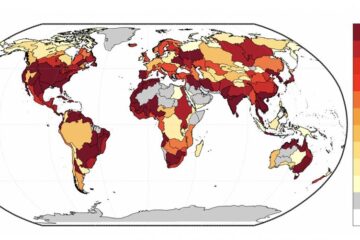Earth Sciences (also referred to as Geosciences), which deals with basic issues surrounding our planet, plays a vital role in the area of energy and raw materials supply.
Earth Sciences comprises subjects such as geology, geography, geological informatics, paleontology, mineralogy, petrography, crystallography, geophysics, geodesy, glaciology, cartography, photogrammetry, meteorology and seismology, early-warning systems, earthquake research and polar research.

Nature study finds transform faults play active role in shaping ocean floors. Forces acting inside the Earth have been constantly reshaping the continents and ocean basins over millions of years….

Experts explore for the first time life on the seafloor in a region formerly covered by thick ice Roughly two weeks ago, a massive iceberg calved from the Antarctic Ice…

When Steamboat Geyser, the world’s tallest, started erupting again in 2018 in Yellowstone National Park after decades of relative silence, it raised a few tantalizing scientific questions. Why is it…

High-resolution model reveals new insights With the help of highly resolved realistic model simulations physicists at the Leibniz Institute for Baltic Sea Research (IOW) have succeeded in depicting the so-called…

Water levels in the world’s ponds, lakes and human-managed reservoirs rise and fall from season to season. But until now, it has been difficult to parse out exactly how much…

To investigate humans’ impact on freshwater resources, scientists have now conducted the first global accounting of fluctuating water levels in Earth’s lakes and reservoirs – including ones previously too small…